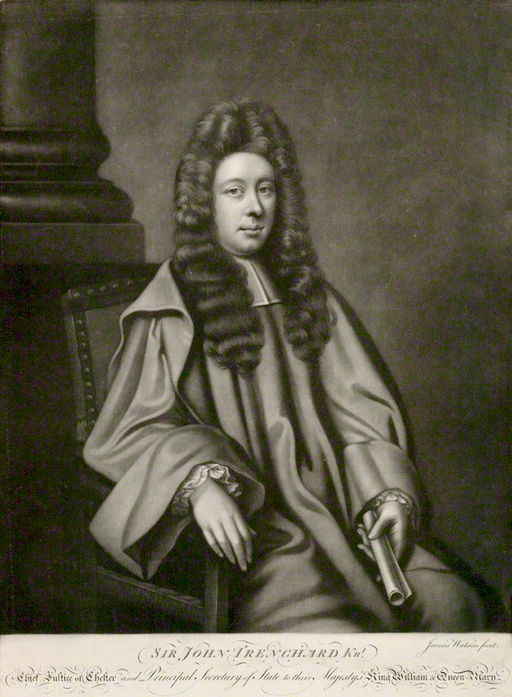Liberty Matters
Machiavellian Moments: Contested Ideas

Given the range of issues raised by the contributors, it seems necessary to load the scattergun and overstep lines of ideology, politics, military affairs, and economics. I hope that a mixed metaphor is no worse than mixed government, which is part of our story and which rested on the 17th-century English merger (and confusion) of two lines of tripartite political analysis. The first involved social functions (or estates) in their Indo-European, (vestigial) Ancient, High Medieval, and Early Modern iterations. The other built on Greco-Roman analysis of political forms empowering the One, the Few, or the Many.[65] The ideal polity finds the best mixture of the classical forms or, alternatively, balances its estates. Could it do both?
English republican (or Country Party) thinkers wrestled these incompatibles into a rough frame. In the long run, as classicist Patricia Springborg writes: “ancient city-republican forms [were] transported, with unintended consequences, into the setting of the large territorial state ... perhaps due to the factor of scale being overlooked.”[66] Human-scale cultural and economic interaction and the “concept of the city as a public space” are “lost when the state ceases to be the city and government is removed to some isolated federal capitol on a hill, with hegemony over lands and seas on which many of its citizens have never personally cast an eye” (italics added). Even worse, perhaps: “Admiration for empire is admiration for sovereignty on the most extensive scale.” [67]
Meditations on republicanism, empire, and sovereignty (as modernized in the 16th century) seemingly left a permanent split in the Anglo-American political mind, one that touches on our standing armies and militia. J.H. Hexter writes that, as of 1600, law “was a science, a mode of knowing: of warring there was only a craft, a mystery, at once temporal and irrational….”[68] Things have not much improved, and the aforesaid split mind lives on, clinging to a constitution and a set of war powers that seem to exist in parallel universes. The constitution knows something of liberty; its shadowy counterpart knows, or is, mainly force.
Thoughts and Deeds
Substitution of Lord Lieutenants and county trainbands for the territorial lords’ private levies allowed England to make, in Hexter’s unkind words, “giant strides toward domestic tranquility and military incompetence.”[69] In 1642 the Militia question raised by Parliament was part of an assault on the executive powers of Charles I and ultimately involved an assertion of parliamentary absolutism. Here, publicist privado Henry Parker (1604-1652), ally of Puritans, became a chief theorist. Taking the Machiavellian high ground of supreme emergency, he asserted the right of Parliament to do literally anything inside or outside the law. The near-totalitarian pitch of Parker’s theses reflected his deep contempt for the common law and his intention of bringing the war powers (whatever they might be) into play in domestic politics. It was a performance to make Carl Schmitt or John Yoo very jealous.[70]
These theses perhaps reflected J.G.A. Pocock’s original Machiavellian moment involving French and Spanish threats to all of Italy and the internal threat of the Medici tyrants to Florence, as viewed from the standpoint of an idealized republican Venice.[71] In any case, Parker’s arguments (or some of them) passed down to the Levellers and into the opposition tradition. Shared commitment to the Protestant cause served to cement this result.
Endnotes
[65.] Ch. 2, “The Idea of the Estates of the Realm,” in Michael Mendle’s Dangerous Positions: Mixed Government, the Estates of the Realm, and the Making of the Answer to the XIX Propositions (Tuscaloosa, AL: University of Alabama Press, 1985), is probably the best discussion to date of these matters in the English language.
[66.] The Romano-Spartan outbursts of French bourgeois republicans like Saint-Just come to mind.
[67.] Patricia Springborg, Western Republicanism and the Oriental Prince (Austin, TX: University of Texas Press, 1992), 241-242, 279.
[68.] J.H. Hexter, On Historians (London: Collins, 1979), 272.
[69.] J.H. Hexter, Reappraisals in History (London: Longmans, 1961), 147 (and see 144 ff).
[70.] Michael Mendle, Henry Parker and the English Civil War (Cambridge: Cambridge University Press, 1995), esp. Ch. 4 and 7.
[71.] J.G.A. Pocock, The Machiavellian Moment: Florentine Political Thought and the Atlantic Republican Tradition (Princeton, NJ: Princeton University Press, 1975), passim.
Copyright and Fair Use Statement
“Liberty Matters” is the copyright of Liberty Fund, Inc. This material is put on line to further the educational goals of Liberty Fund, Inc. These essays and responses may be quoted and otherwise used under “fair use” provisions for educational and academic purposes. To reprint these essays in course booklets requires the prior permission of Liberty Fund, Inc. Please contact oll@libertyfund.org if you have any questions.